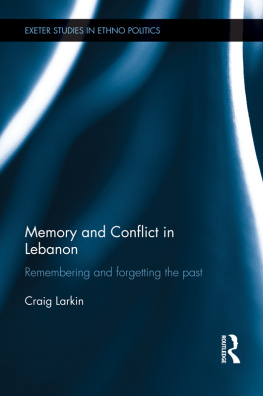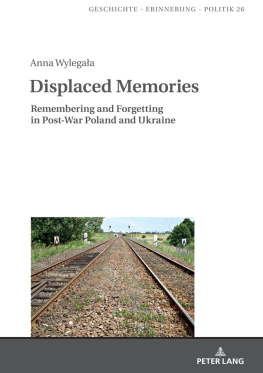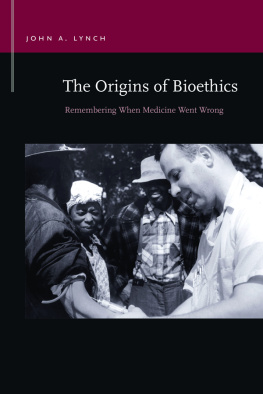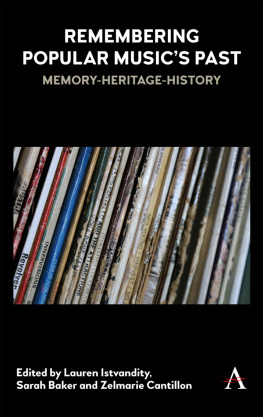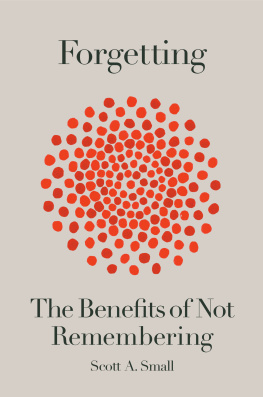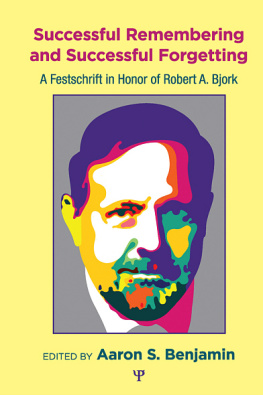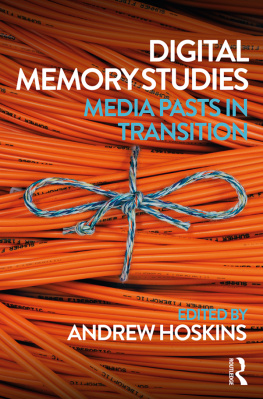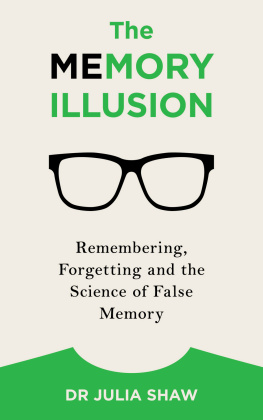Memory and Conflict in Lebanon
This book examines the legacy of Lebanons civil war and how the population, and the youth in particular, are dealing with their national past. Drawing on extensive qualitative research and social observation, the author explores the efforts of those who wish to remember, so as not to repeat past mistakes, and those who wish to forget.
In considering how the Lebanese youth are negotiating this collective memory, Larkin addresses issues of:
Lebanese post-war amnesia and the gradual emergence of new memory discourses and public debates
Lebanese nationalism and historical memory
Visual memory and mnemonic landscapes
Oral memory and post-war narratives
War memory as an agent of ethnic conflict and a tool for reconciliation and peace- building
Trans-generational trauma or postmemory.
Shedding new light on trauma and the persistence of ethnic and religious hostility, this book offers a unique insight into Lebanons recurring communal tensions and a fresh perspective on the issue of war memory. As such, this is an essential addition to the existing literature on Lebanon and will be relevant for scholars of sociology, Middle East studies, anthropology, politics and history.
Craig Larkin is Associate Research Fellow in the Department of Politics at the University of Exeter, UK. His current research focuses on divided cities as key sites in territorial conflicts over state and national identities, cultures and borders.
Exeter studies in ethno politics
Series Editor: Gareth Stansfield
University of Exeter, UK
Unrecognized States in the International System
Edited by Nina Caspersen and Gareth Stansfield
The Kurdish National Movement in Turkey
From protest to resistance
Cengiz Gunes
Memory and Conflict in Lebanon
Remembering and forgetting the past
Craig Larkin
Memory and Conflict in
Lebanon
Remembering and forgetting the past
Craig Larkin
First published 2012
by Routledge
2 Park Square, Milton Park, Abingdon, Oxon OX14 4RN
Simultaneously published in the USA and Canada
by Routledge
711 Third Avenue, New York, NY 10017
Routledge is an imprint of the Taylor & Francis Group, an informa business
2012 Craig Larkin
The right of Craig Larkin to be identified as author of this work has been asserted by him in accordance with sections 77 and 78 of the Copyright, Designs and Patents Act 1988.
All rights reserved. No part of this book may be reprinted or reproduced or utilised in any form or by any electronic, mechanical, or other means, now known or hereafter invented, including photocopying and recording, or in any information storage or retrieval system, without permission in writing from the publishers.
Trademark notice: Product or corporate names may be trademarks or registered trademarks, and are used only for identification and explanation without intent to infringe.
British Library Cataloguing in Publication Data
A catalogue record for this book is available from the British Library
Library of Congress Cataloging in Publication Data
Larkin, Craig.
Memory and conflict in Lebanon: remembering and forgetting the past/Craig Larkin.
p. cm. (Exeter studies in ethno politics; 3)
Includes bibliographical references and index.
1. LebanonPolitics and government1990 2. LebanonHistoryCivil
War, 19751990Psychological aspects. 3. LebanonHistoryCivil
War, 19751990Social aspects. 4. Youth and warLebanon.
5. Collective memoryLebanon. 6. Politics and warLebanon.
7. Peace-buildingLebanon. I. Title.
DS87.54.L36 2012
956.92044dc23
2011028580
ISBN: 978-0-415-58779-2 (hbk)
ISBN: 978-0-203-13797-0 (ebk)
For Debbie
Contents
Illustrations
Figures
Table
Acknowledgements
During the course of writing this book I have been helped by numerous friends and academic colleagues in Lebanon and the United Kingdom. Special thanks must go to Muhammad Salah-Omri for his insight, encouragement and guidance throughout my doctoral studies at the Institute of Arab and Islamic Studies at the University of Exeter. My understanding of Lebanese politics and civil society has benefited from and been challenged by discussions with Theodor Hanf, Samir Khalaf, Nadim Shehadi, Sune Haugbolle, Michael Kerr, Pamela Chabrieh, Mai Masri, Kamal Shayaa, Beverley Milton-Edwards, Michael Dumper, Nadje al-Ali and Ruba Salih.
I am indebted to the Centre for Middle East Studies at the American University of Beirut for their research affiliation, to the Centre for Conflict Resolution and Peace Building and to the Umam Documentation and Research Unit for providing access to source materials and allowing me to engage in participant observation. I am most grateful to the head teachers and teaching staff of the Lebanese High Schools who granted me access to their schools and students. Thanks Steph, for your numerous introductions, and Diana Assaf, for your insight into youth culture and urban graffiti. Ultimately, this book could not have been written without the input and openness of the Lebanese students who generously allowed me to interview them. I hope I have faithfully captured something of the complexity and uncertainty that surrounds your understanding of Lebanons past and your hopes and fears for the nations future.
This book has also been shaped by my research fellowship with the Conflict in Cities and the Contested State project, funded by the Economic and Social and Research Council (RES-060-25-0015). I would like to thank the teams in Queens University Belfast and Cambridge University for their valuable insights, feedback and support.
Some research material and analysis in journals and Cambridge University Press and the American Sociological Association for their permission to publish.
Finally, I dedicate this book to my family for their constant love and support; and to my wife who has been my encouragement, inspiration and partner in this journey.
Note on Language
The transliteration from Arabic generally follows the International Journal of Middle East Studies system. However no distinction is made between long and short vowels and Hamza is rendered with and Ayn with . For Arabic names of people, places and well-known terms I use the commonly accepted English spelling used by media and in accordance with accepted practice in Middle East studies (e.g. Beirut, Sheikh Hasan Nasrallah, Quran or Hizbullah). For interviews in Arabic I reflect the Lebanese colloquial pronunciation. Interviews were conducted in Lebanese dialect Arabic, English and a mixture of both, a common trait amongst urban youth. Some terms I have chosen to keep in the original Arabic, as the meaning is not fully captured by a direct English translation (e.g. Intifada or wasta). Except for public figures the names of interviewees have been changed to protect their anonymity.
Abbreviations
Amal | Afwaj al-Muqawama al-Lubnaniya |
AOU | Arab Open University |
AUB | American University of Beirut |
AUST | American University of Science and Technology |


